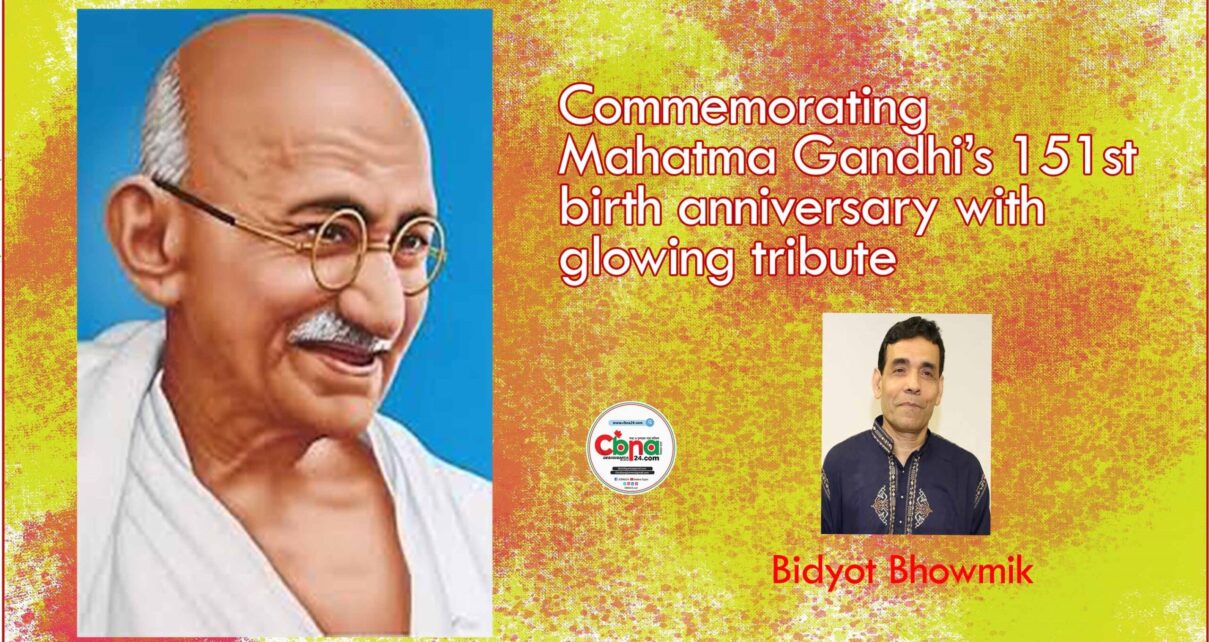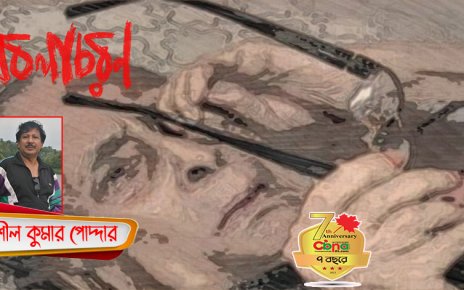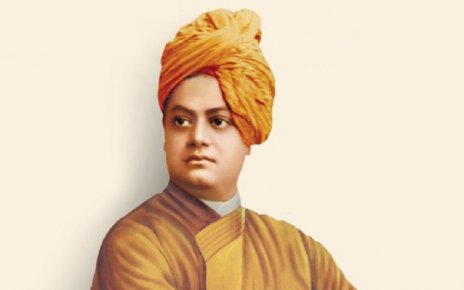Commemorating Mahatma Gandhi’s 151st birth anniversary with glowing tribute –Bidyot Bhowmik
2nd October is the birth anniversary of Mahatma Gandhi. Gandhi’s birthday on 2nd October is commemorated in India as Gandhi Jayanti, a national holiday in India. 2nd October is also celebrated as the international Day of Non-violence worldwide declared by United Nations General Assembly in 2007 because of Mahatma Gandhi’s proven commitment to uphold non-violent passive movement against all kinds of oppression and suppression throughout his political career. It was Mahatma Gandhi who inspired non-violent movement for civil rights and freedom across the world. He is the father of the nation of India. Mohandas Karamchand Gandhi known as Mahatma Gandhi was born on 2nd October, 1869 at Porabander in Gujrat. Mahatma Gandhi was a great humanist. Employing non violent civil disobedience, Gandhi led India to independence and inspired movements for civil rights and freedom across the world. Born and raised in a Hindu merchant class family in coastal Gujrat in India, and trained as Barrister at law in London, Gandhi first employed nonviolent civil disobedience as an expatriate lawyer in South Africa, in the resident Indian community’s struggle for civil rights. After his return to India in 1915, he set about organising peasants, farmers, and urban labourers to protest against excessive land-tax and discrimination. Assuming leadership of the Indian National Congress in 1921, Gandhi led nationwide campaigns for various social causes and for achieving self-rule for India.
Gandhi famously and courageously led Indians in challenging the British-imposed salt tax with the 400 km (250 miles Dandi Salt March in 1930, and later started the Quit India Movement in 1942. He was imprisoned for many years, upon many occasions, in both South Africa and India. He lived modestly a simple life and wore the traditional Indian dhoti and shawl, woven with yarn hand-spun on a chorkha. He ate simple vegetarian food, and also undertook Long fasting or Satyagraha as a means of both self-purification and political protest. He was a dedicated humanist to the backbone. Gandhi strongly favoured the emancipation of women and urged the women to fight for their own self-development. He opposed purdah, child marriage, dowry and sati. According to Gandhi, “A wife is not a slave of the husband but his comrade, better half, colleague and friend.”
Mahatma Gandhi was tragically assassinated on 30th January, 1948 by radical nationalist named Nathuram Godse. Prime Minister Jawaharlal Nehru was so shocked at the assassination of Mahatma Gandhi and addressed his countrymen over the All India Radio saying:
“Friends and comrades, the light has gone out of our lives, and there is darkness everywhere, and I do not quite know what to tell you or how to say it. Our beloved leader, Bapu as we called him, the father of the nation, is no more. Perhaps I am wrong to say that; nevertheless, we will not see him again, as we have seen him for these many years, we will not run to him for advice or seek solace from him, and that is a terrible blow, not only for me, but for millions and millions in this country.”
Gandhi is a man that changed a nation and changed the world with his compassion, non-violent vision, tolerance, and patience. Mahatma Gandhi is an undying reminder of how one person can inspire a community, a nation, and the world. Mahatma Gandhi was against all kinds of racism, oppression and communal sentiment. Great Nobel Laureate poet Rabindra Nath Tagore entitled him with Mahatma (great soul) because of his greatness of heart. Netaji Subash Basu, a great patriotic leader of India, called him the “Father of the Nation” because of his greatness of heart, plain living, dedication and love for mankind. Great Nobel Laureate and world’s renowned scientist Albert Einstein once said, “Mahatma Gandhi’s life achievement stands unique in political history. We may all be happy and grateful that destiny gifted us with such an enlightened contemporary, a role model for the generations to come. Generations to come will scarce believe that such a one as this walked the earth in flesh and blood. ” Gandhi influenced important world leaders and political movements. Leaders of the civil rights movement in the United States, including Martin Luther King Jr., James Lawson and James Bevel inspired from the writings of Gandhi in the development of their own theories about non-violence. Dr. Martin Luther King said “Christ gave us the goals and Mahatma Gandhi the tactics.” Time Magazine named the great, well known and famous non-violent world leaders like 14th Dalai Lama, Lech Walesa, Martin Luther King Jr, Cesar Chavez, Aung San Suu Kyi, Benigno Aquino, Desmond Tutu, Nelson Mandela as Children of Gandhi and his spiritual heirs to nonviolence. Martin Luther King sometimes referred to Gandhi as “the little brown saint.” Anti-apartheid activist and former President of South Africa, Nelson Mandela was highly inspired by Mahatma Gandhi. Gandhi’s life and teachings inspired many who specifically referred to Gandhi as their mentor or who dedicated their lives to spreading Gandhi’s outstanding ideas. In Europe, Noble Laureate French philosopher and writer Romain Rolland was the first to discuss Gandhi in his 1924 book Mahatma Gandhi, and Brazilian anarchist and feminist Maria Lacerda de Moura wrote about Gandhi in her work on pacifism. Mahatma Gandhi was honest, sincere, dedicated, patriot, humanist, idealist and a non-violent pacifist against all kinds of injustice, oppression and suppression. With love and respect, I pay my glowing tribute to Mahatma Gandhi on his 151st birth anniversary on 2nd October 2020.
Source: Wikipedia
Former professor, writer and advisor to CBNA, Montreal, Canada
2nd October 2020
সিএ/এসএস
দেশ-বিদেশের টাটকা খবর আর অন্যান্য সংবাদপত্র পড়তে হলে CBNA24.com
সুন্দর সুন্দর ভিডিও দেখতে হলে প্লিজ আমাদের চ্যানেল সাবস্ক্রাইব করুন




